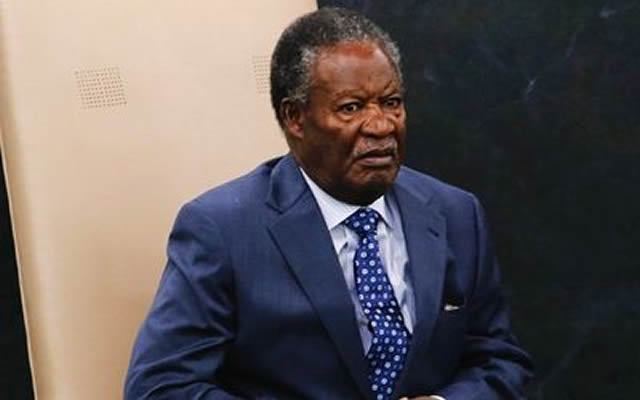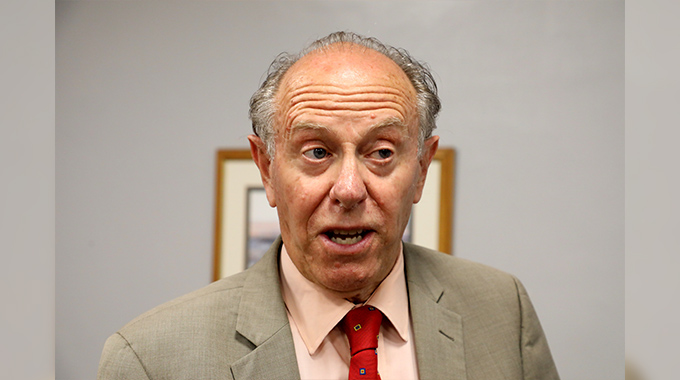Is Nigeria ready to lead Africa?

Audu Liberty Oseni
It is important to begin this debate by interrogating our actual growth and development rather than be emotional about our rebased Gross Domestic Product (GDP) and where we will be in 2020 or 2030. What does it mean to be a leading African economy? Will ascribing Africa’s biggest economy to ourselves solve the problems of poverty and inequality in Nigeria?
Indeed, the neo-liberal models that are generating growth and driving us closer to a middle income category have also generated poverty and inequality. It is important to note that the market fundamentalists are enthusiastic to underscore that 6 out of the 10 countries globally that have recorded the fastest economic growth are in Africa. However, they are silent on the fact that those 6 countries are also witnessing escalating inequality and severe poverty. For instance, despite our rebased Gross Domestic Product (GDP) and the much celebrated economic growth, our poverty still stands at 69 percent.
Is the growth that comes with gross inequality and exclusion desirable, or sustainable? Unquestionably not! Then comes another question, are the socioeconomic disparities perpetrated by the neo-liberal model a necessary price we have to pay in our ignorance of measuring how well our economy is doing? The neo-liberal model fundamentalists who sing the praise of our rebased GDP are yet to sincerely answer the question what is happening to poverty, inequality and unemployment? Certainly they will not because the economists live in a denial and seem not to understand our current realities.
We should interrogate our potential to solving our local problems first before thinking of leading the entire continent. To realise development, we must be a developmental state that acts proactively to transform the economy and the state. We have to do this within the democratic setting in which we operate. Our politics at the moment is confrontational. Our politics must give consensus to development priorities that could transform our economies and the state. Our ability to direct our affairs, build strong institutions, create a space for civil society organisations and build the capacity of our citizens to engage governance will be determinant factors for measuring our readiness for development and eventually lead Africa.
Nigeria’s potential cannot be translated into development unless huge investments are made on education and health, promotion of inclusive growth, creation of employment and address matters to do with the sustainability of our development process. The issue, therefore, is not economists rebasing our GDP growth but what the policies and development models are being put in place to drive development and turn our 170 million people into assets.
One way we can begin to redefine our path as a nation is to have industrialisation as an integral part of our development planning process. Without industrialisation, we are not going to build an economy that will create opportunities and end poverty. Apparently, all countries that have reduced poverty did so because the economies grew out of practical strategies that created sustainable jobs and provided decent incomes based on industrial growth. Our model which bases on the intensification of our past colonial way of commodity export is not sustainable for our growth and development.
We must remodel our political process. Our political parties are not engaging the population; they are essentially “periodic vote gathering organisations.” We do not have any democratic structures within which we have debates on the problems facing us and about the choices that needed to be made. Our political parties are not people driven, their ability to understand what is happening in our society is weak.
The factions in our political parties are about patronage – not about the needs of the people.
Why has our country defiled all the development frameworks and models? Why have all the benchmarks we set for ourselves not been achieved? We need a sincere democratic debate with the state actors, non-state actors, religious leaders, business giants and citizens on what needs to be done. We need to have a comprehensive review of what has happened during the last 60 years and come up with new ways of crafting the development model we need to adopt and determine what future we need for our people.
Our current realities do not allow us to lead Africa. On whether we have the ability to lead Africa, our bureaucrats, academics and government paid agents promptly make reference to our population, GDP growth and our recent rebased GDP to enlarge their illusion of our greatness which they have propagated and promoted without any result to show. Our lack of firm socio-economic substructure, a functional industrial foundation, and a stable self-regulatory policy further exposes the illusion and lack of understanding of our bureaucrats, academia, ruling class in their calculation of our situation. It is embarrassing that we are still following the neo-liberal models in analysing our economic growth and we are yet to reappraise, rethink and restructure our own model of measuring our economic growth.
Apparently, illusions are not easily surrendered, and when they are surrendered, they are often succeeded by new myths. It will be difficult for the economists and our government propagandists to agree with our present reality. I am particularly worried. Judging from our poverty rate, youth bulge and unemployment, insecurity, mega corruption, import dependent economy, poor education, inadequate housing and leadership failure, we still impose to ourselves the readiness to lead Africa. We might be rich, big, large, and wealthy or even a populous country, but we do not at the moment have the capacity to lead Africa.
We need to rethink our past, re-examine our democracy, ask where we went wrong, and what to do in future to have a better Nigeria. We must have an alternative crop of elite with alternative perspectives. If we fail to dream new dreams and see new visions for the future, we are getting nowhere. To lead Africa, we must build a formidable military might, industrial base, a sound economic structure, a conscientised civil society, and stable political system. Our false generosity abroad and poverty at home must be stopped.
It is not a taboo for us to aspire to lead Africa, but we must understand that there is a lot work to be done before that happens. We must think of how to achieve it and plan towards it. The aspiration alone is not enough, what matters most is how to get there. In our “camouflage” arguments, yes, we hosted the World Economic Forum (WEF) and rebased our GDP this year 2014 and the economy is growing at 7 percent rate. Beyond rebasing our GDP, what the economists do not know is that Rwanda and Mauritius did not wait for neo-liberal model analysis in addressing their challenges. Kwame Nkrumah, Thomas Sankara and Amilcar Cabral have proven the economists wrong; they have shown you can only improve the lives of the citizens via purposeful leadership which is a key missing link in our country that aspires to lead Africa.
Without a visionary leadership and citizens with capacity to engage governance, no matter how we rebase our GDP we will continue our aspirant to lead Africa. Economists must understand the neo-liberal models have not been solution to ensuring development anywhere in the world. It is a mere intellectual delusion, and those who still argue on the basis of neo-liberal models must be stoned.
This opinion originally appeared in African Executive.










Comments